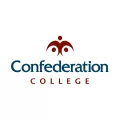CIP Code: 44.0201
Naadaamaagewin: Lending a helping hand
Confederation College’s Indigenous Community Advocacy: Naadaamaagewin program is a two-year transformative journey aimed at empowering individuals committed to championing Indigenous justice and self-determination. This program profoundly emphasizes Indigenous law and advocacy, fostering a deep understanding of Indigenous knowledge systems and ethical frameworks. Through an immersive curriculum, students amplify voices within Indigenous communities to raise awareness and enhance their capacity for self-governance.
By centring Indigenous well-being and nationhood, graduates emerge equipped with the tools to craft innovative solutions for community challenges. This program equips students with the skills to navigate complex political, social, and cultural landscapes, fostering meaningful dialogue on Indigenous and Canadian relations. Graduates are poised to initiate advocacy campaigns and lead community-based projects that contribute to the ongoing journey of truth and reconciliation. Join us in shaping a future where Indigenous communities thrive with autonomy and dignity.
Ideal Candidate Profile
- Succeed in the Indigenous Community Advocacy: Naadaamaagewin program if you are:
- Empathetic and Compassionate: Understanding and sensitivity to Indigenous issues.
- Resilient and Determined: Able to navigate complex social and political landscapes.
- Ethical and Honest: Committed to ethical advocacy and research.
- Culturally Humble: Respectful of Indigenous traditions and worldviews.
- A Critical Thinker: Able to analyze legal and political relationships.
- An Effective Communicator: Strong in both verbal and written advocacy.
- Collaborative: Skilled in building respectful, professional relationships.
- Passionate for Social Justice: Dedicated to promoting Indigenous self-determination and well-being.
Top Highlights
- Land-Based Learning and Hands-On Experience: Engage in practical learning with Indigenous advocates, enhancing your understanding through real-world applications.
- Legal and Political Insights: Gain a deep understanding of the legal and political relationships between Indigenous nations and the Canadian state.
- Community-Based Projects: Develop and deliver impactful community advocacy projects that foster social change.
- Pathways to Further Education: Opportunities to pursue undergraduate degrees in Political Science, Indigenous Studies, Sociology, and Community Economic and Social Development.
Program Learning Outcomes
The graduate has reliably demonstrated the ability to:
- Advocate for the advancement of Indigenous self-determination and self-government through the lens of Indigenous traditions and worldviews.
- Critique the legal and political principles that underlie the Indigenous/Canadian relationship.
- Apply research in an ethical and consultative manner to lead social change initiatives for Indigenous communities in a global landscape.
- Demonstrate methods of advocacy on behalf of Indigenous peoples to advance individual and community goals in the pursuit of justice.
- Develop a deep understanding of colonialism to better understand its impact on the current realities of Indigenous peoples.
- Develop respectful and collaborative professional and interpersonal relationships that facilitate open communication and promote competence as an Advocate.
Experiential Learning
Land-Based Learning: Participate in immersive land-based learning experiences that connect you deeply with Indigenous traditions and environmental stewardship.
Practical Projects: Develop and implement community-based advocacy projects, gaining hands-on experience in creating meaningful change.
Join Us
Become a part of Confederation College’s Indigenous Community Advocacy: Naadaamaagewin program and lend a helping hand ("Naadaamaagewin") in shaping a just and equitable future for Indigenous communities. Through this program, you will gain the knowledge, skills, and experience to advocate effectively and drive positive change.
Graduates of the Indigenous Community Advocacy: Naadaamaagewin program are sought after for their unique set of skills and knowledge by a wide range of organizations. Possible career paths include:
Justice Sector:
- Court Workers
- Gladue Writers and Coordinators
- Restorative Justice Workers
- Bail Workers
- Community Release and Reintegration Workers
Policy and Advisory Roles:
- Policy Analysts and Advisors
- Intergovernmental Advisors
- Anti-Racism Coordinators
- Community Legal Workers
Community and Social Services:
- Family Support Workers
- Indigenous Peer Advocates
- Housing Coordinators
- Indigenous Engagement Coordinators
- Indigenous Patient Navigators
- Indigenous Resource Workers
- Indigenous Victim Family Liaisons
- Mental Health and Addictions Systems Navigators
Graduates can expect to find employment in sectors such as justice, criminal and family law, policy analysis, government relations, community work (both on-reserve and in urban centres), anti-racism and DEI work, housing policy, victim advocacy, child welfare and protection, healthcare, and addictions and mental health.







